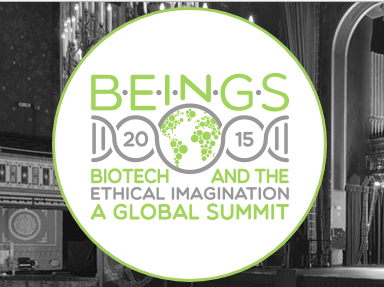Ethical principles for the use of human cellular biotechnologies
By Paul Root Wolpe, et al.,
Nature Biotechnology
| 11. 09. 2017
Recent developments in bioengineering promise the possibility of new diagnostic and treatment strategies, novel industrial processes, and innovative approaches to thorny problems in fields such as nutrition, agriculture, and biomanufacturing. As modern genetics has matured and developed technologies of increasing power, debates over risk assessments and proper applications of the technology, and over who should have decision-making power over such issues, have become more prominent. Recently, some scientists have advocated that ethicists “step out of the way,” whereas others have called for greater ethical scrutiny, or even for moratoria on some lines of research1,2. As a community, however, we must together determine the proper application of these powerful biological tools. This paper, a consensus statement of a group of interdisciplinary delegates drawn from the top biotech-producing countries of the world, offers a set of ethical principles to contribute to the ethical conversation about human cellular biotechnological research moving forward.
In May 2015, a group of over 140 delegates from the top biotech-producing countries of the world gathered in Atlanta, Georgia, USA for a three-day conference entitled...
Related Articles
By Liyan Qi and Jonathan Cheng, The Wall Street Journal | 03.26.2025
photo via Wikimedia Commons licensed under CC by 3.0
Chinese scientist He Jiankui set off global outrage and landed in prison after he skirted ethical guidelines and claimed he had produced genetically modified babies designed to resist HIV infection.
Now, the self-styled ...
By Peter Wehling, Tino Plümecke, and Isabelle Bartram
| 03.26.2025
This article was originally published as “Soziogenomik und polygene Scores” in issue 272 (February 2025) of the German-language journal Gen-ethischer Informationsdienst (GID); translated by the authors.
In mid-November 2024, the British organization Hope not Hate published its investigative research ‘Inside the Eugenics Revival’. In addition to documentating an active international “race research” network, the investigation also brought to light the existence of a US start-up that offers eugenic embryo selection. Heliospect Genomics aims to enable wealthy couples to...
By Carsten T. Charlesworth, Henry T. Greely, and Hiromitsu Nakauchi, MIT Technology Review | 03.25.2025
Why do we hear about medical breakthroughs in mice, but rarely see them translate into cures for human disease? Why do so few drugs that enter clinical trials receive regulatory approval? And why is the waiting list for organ transplantation...
By Anna Louie Sussman, The New York Times | 03.25.2025
On June 24, 2022, the same day the Supreme Court issued its decision in Dobbs v. Jackson Women’s Health Organization, I received a call from the fertility clinic where I’d been undergoing in vitro fertilization, informing me that seven of...




